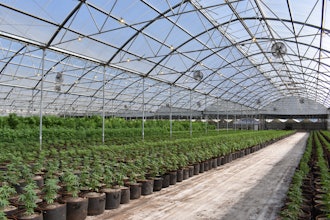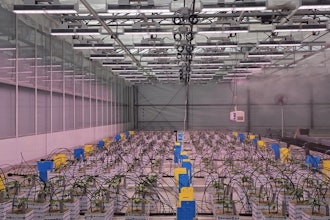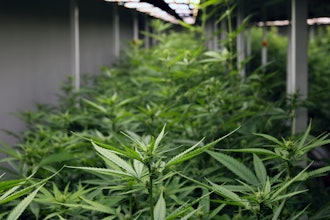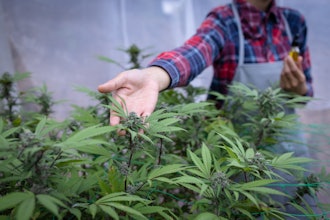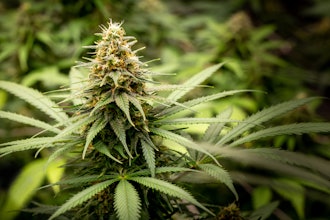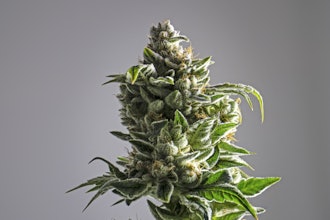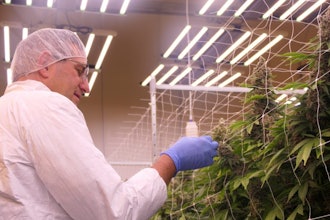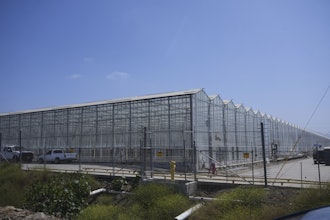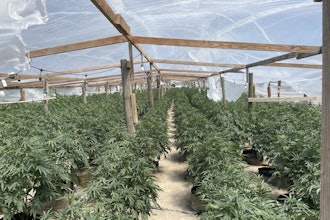
Symple Seeds is known as the "Amazon of cannabis seeds." The cannabis technology company has brought together decades of e-commerce experience with global supply chain management to produce a true "seed-to-sale" experience in the U.S.
According to the company, it is the largest collective e-commerce platform for cannabis seeds in the U.S., facilitating some 275,000 orders in 2022 and generating more than $45M in revenue.
 Jessica Hanson, CEO of Symple Seeds.
Jessica Hanson, CEO of Symple Seeds.
Cannabis Equipment News: How has the "gold rush for cannabis seed sellers" impacted the market?
Jessica Hanson: The cannabis seed market is indeed experiencing a seismic shift, mainly due to the legalization of cannabis seeds under the Farm Bill.
One of the most significant consequences of this "gold rush" is the multitude of new breeders and brands, many of which lack credibility and trustworthiness. This influx of untrustworthy sellers is making it difficult for consumers to find reliable sources, as many of these new brands sell counterfeit or misrepresented seeds.
Another notable market change is the larger, more established companies or "Seed Banks" that have entered the scene, significantly altering the landscape. With their vast resources and wide-ranging distribution networks, they can easily overshadow smaller, original breeders, and dominate the market, making it challenging for the original, artisanal breeders to operate on an even playing field. They now set the rules, making it hard for niche companies to maintain diversity, ensure the survival of unique strains and preserve the spirit of innovation that has characterized the cannabis seed industry for decades.
CEN: Is a seed just a seed?
Hanson: No, not all seeds are created equal. Who produced it and where it was produced significantly make a difference in genetic traits, growing requirements, cannabinoid content, and, ultimately, the quality and yield of the flower they produce.
It's not only about the seeds; it's about nurturing a robust and informed community of cannabis enthusiasts who can navigate the intricacies of the market, appreciate the diversity of strains, and ultimately ensure the integrity and growth of the industry as a whole.
CEN: What do large cannabis operators look for in a seed?
Hanson: In the realm of the seed market, large legitimate cannabis operators prioritize seeds that offer consistency and reliability. They require genetic stability, ensuring that their plants consistently exhibit uniform growth patterns, cannabinoid content and other essential traits across their entire crop.
Disease resistance is another critical factor. Robust genetics that display resistance to common pests and diseases are highly sought after by large growers.
All these factors as well as a proven track record of delivering bountiful harvests, allow larger growers to optimize their returns on investment and meet the market's increasing demands.
CEN: Will there always be a market for cannabis seeds?
Hanson: The question of the enduring market for cannabis seeds is a pertinent one, and the answer lies in the unique nature of the cannabis plant itself. Cannabis has shown remarkable adaptability and has been cultivated for centuries for a variety of purposes, including medicinal, industrial and recreational. With the ongoing discoveries regarding the therapeutic potential of cannabis compounds and the expanding legalization of both medical and recreational cannabis, the demand for diverse and high-quality cannabis seeds remains robust.
Moreover, the global trend toward cannabis decriminalization and legalization, driven by changing societal attitudes and a growing body of scientific evidence, continues to open up new markets and opportunities. As the cannabis industry diversifies, so does the market for seeds. There are new applications emerging, for both industrial purposes and various specialized medical strains.
The cannabis seed market is also underpinned by the passionate community of breeders, growers, and enthusiasts who continuously seek novel and unique genetics. The diversity in preferences for different strains, flavors and effects ensures that a market for cannabis seeds will persist, albeit in a continually evolving form.
CEN: Why was it important for you to bring "light to the dark corners of cannabis seeds?"
Hanson: For decades, the grey and black European markets were the only ones focusing on breeding seeds and shipping them to U.S. consumers. This, naturally, came with a lack of testing, tracking and accountability for things like non-germination issues and the arrival of the seeds. Seeds have been dismissed and overlooked for years.
The old model was historically based in Spain. Growers who grew in secret trap houses with stolen electricity throughout Spain, and sent their supply to seed brokers who would accumulate 10-20 strains and then repurpose those strains for whatever the customer wanted. No matter what you wanted, the seed broker always seemed to have exactly what you needed, in the quantity that you needed it – like magic.
We work to promote transparency and responsible cultivation practices, access to accurate information about the seeds, their genetics, and cultivation techniques empowers growers to make informed choices, fostering legitimacy and bringing light to the market. We are working towards mitigating the potential risks associated with the black market, as legal and regulated sources of cannabis seeds become more readily available. By promoting transparency, reliability and quality, we can help protect consumers, ensure compliance with local regulations, and contribute to the overall sustainability and growth of the industry.
CEN: You have a staff that is 93% female. What benefits have you yielded as a result of your female empowerment efforts?
Hanson: I take immense pride in the benefits that have resulted from our commitment to female empowerment, especially in such a male-dominated industry. First and foremost, our predominantly female mid-management layer has fostered an inclusive and supportive workplace culture where women feel valued, respected and empowered.
The diverse perspectives brought by our female employees have fueled innovation and creativity leading to the development of unique solutions that have given us a competitive edge in this industry. Our commitment to gender diversity and empowerment has not only created opportunities for women to thrive within the cannabis industry but has also set an example for the broader business community.










